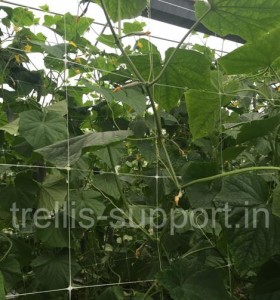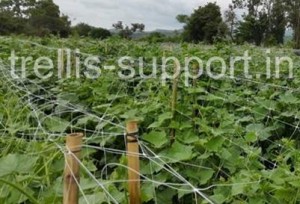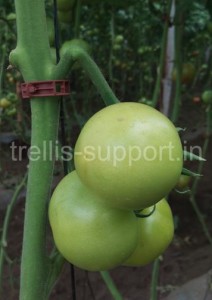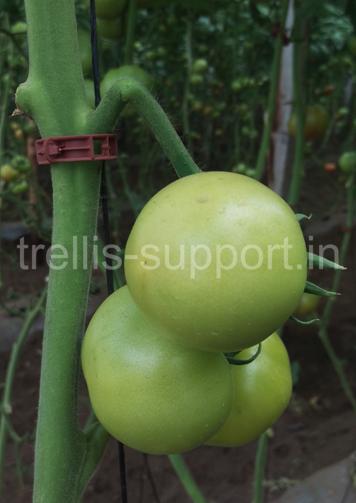| Trellis support as an Agronomic aid for Reducing Phytopatyhogens |
Vegetable Plant Trellis Support made simple

Trellis support netting is ideal when growing cucumbers melons squash and it reduced diseases especially when growing tomatoes, peppers and eggplants as the latter need more manual plant training, as they do not have tendrils as the cucurbits do.

Plant leaves need to stay up and away from the ground and the humidity trapped in the soil in order to decrease their propensity for getting diseased by fungal attacks. Trellis support netting does just that, by providing the right plant support so the plant can utilize its energies in growing and filling fruits rather than strengthening the plant itself.

When using raffia as a trellis support one risks increasing the mechanical spread of diseases because tutoring with raffia implies a great number of man hours necessary to do the plant training on the raffia twine, like in the high-wire tomatoes and cucumber method, there the agricultural raffia is unwound vertically towards the plant from a hook from a stronger steel support cable or structure. When using Trellis Support Netting the plant is left to grow naturally on the net and there is very little human intervention, this means less broken plants (i.e. less pathogens entering the plant though the lymph) and less mechanical plant stress (which means increasing crop yields between 8 and 10%). Trellis netting also converts into a lower rate of mechanically transmitted diseases as the plants do not need as much manual tutoring therefore a worker will not enter in contact with a sick plant like it does when using raffia. By decreasing the amount of hand contacts and the possibility that after touching a plant that has viruses, bacterias or fungi the worker starts an exponential contagion by tutoring with raffia thousands of other plants we reduce the rate of disease transmission.
Overall one can state that trellis support netting is a greater tool for tutoring plants than the traditional raffia twine, click here to find out more about the most popular support netting on the market, or here to join their facebook group
